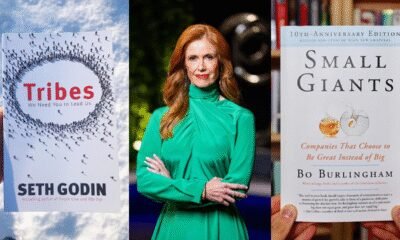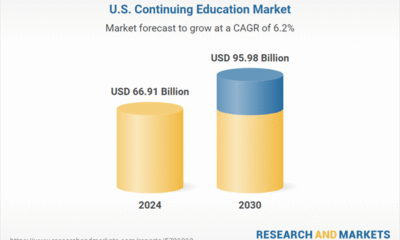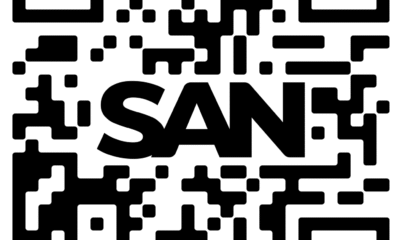Ethics & Policy
7 Life-Changing Books Recommended by Meg Whitman

7 Life-Changing Books Recommended by Meg Whitman (Picture Credit – Instagram)
Few business leaders have balanced corporate ambition with public service as effectively as Meg Whitman. From leading eBay through explosive growth to serving as a U.S. ambassador, her reading habits reflect a thoughtful approach to leadership, innovation, and personal values. The books she recommends are not just blueprints for success, but lessons in vision, ethics, and strategic thinking. Each one offers insight into the mindset of a woman who has navigated boardrooms and bureaucracies with equal command and continues to inspire across industries.
1. Good to Great by Jim Collins
Jim Collins examines what allows good companies to become exceptional and sustain success. Based on rigorous research and case studies, the book identifies key traits like disciplined leadership, focused goals, and strategic consistency. Meg Whitman credits this book as foundational to how she led eBay through transformational growth. She resonates with its insights on humility, resilience, and long-term vision.
For Whitman, the book reinforces the belief that greatness isn’t accidental; it comes from a culture of accountability and aligned purpose at every level of an organisation. It also underscores the value of disciplined leadership, data-driven decisions, and the power of investing in people who share a unified mission. These principles, she believes, are essential for building enduring companies that lead with integrity and adapt wisely in times of change.
2. The World Is Flat by Thomas L. Friedman
Friedman’s bestseller explains how technological advances and globalisation have levelled the economic playing field. The book breaks down how companies and individuals must now compete on a global scale, no matter their geography. Meg Whitman finds this analysis crucial for understanding the modern economy’s interconnectedness. It helped her grasp the future of commerce and labour distribution during her years at eBay and Hewlett-Packard.

The book encourages leaders to embrace agility, tech fluency, and global vision, principles Whitman has consistently applied in business and diplomacy. It also highlights the importance of inclusive growth, digital infrastructure, and cross-border collaboration, all of which align with Whitman’s focus on scalable innovation, sustainable strategy, and fostering opportunity in rapidly shifting global markets.
3. Playing to Win by A.G. Lafley & Roger L. Martin
This book offers a clear framework for crafting effective business strategy, based on the authors’ experience transforming Procter & Gamble. It outlines essential choices about where to compete and how to succeed. Meg Whitman values its practical, no-nonsense approach to decision-making. For her, the book’s emphasis on clarity, consistency, and strategic intent made it a vital tool for leading high-stakes organisations.
Rather than abstract theories, it provides structured methods for driving performance, allowing leaders to navigate complexity with focus and confidence. It also reinforces the value of measurable outcomes, disciplined execution, and alignment across teams, principles that Whitman has used to turn around businesses and lead with purpose. Its practical approach has helped her foster accountability while keeping long-term vision rooted in achievable, data-backed goals.
4. A Christmas Carol by Charles Dickens
This beloved novella follows Ebenezer Scrooge’s transformation from a miser to a man of generosity and compassion. Though fictional, the book’s moral depth profoundly resonates with Meg Whitman. She views its themes of redemption, empathy, and social responsibility as key lessons for leaders. The story highlights that success must be rooted in values and human connection, not just profit.
Whitman sees it as a timeless reminder that leadership carries ethical responsibilities. It aligns with her belief that self-aware, values-driven leaders can build trust, inspire change, and shape society beyond profit. For her, true leadership is rooted not just in results but in responsibility, integrity, and lasting impact.
5. Hot, Flat, and Crowded by Thomas L. Friedman
In this urgent sequel to ‘The World Is Flat,’ Friedman turns his focus to environmental degradation, population growth, and rising middle-class demands. He argues that the U.S. must lead in clean technology and sustainability. Meg Whitman appreciates its persuasive case for innovation as a patriotic and economic imperative. The book influenced her thinking on how business must intersect with environmental stewardship.

It calls for bold, systemic change, values Whitman has echoed in advocating for forward-thinking solutions that balance growth with global responsibility. It also stresses the urgency of innovation, cross-sector collaboration, and long-term sustainability over short-term gain. For Whitman, the book reinforced the idea that corporate leaders must be proactive in addressing climate risks and resource equity, integrating environmental ethics into core strategies to secure a viable future for both business and planet.
6. The New American Story by Bill Bradley
Former senator Bill Bradley presents a vision of America rooted in compassion, civic duty, and people-first politics. He addresses major reforms with a bipartisan, pragmatic tone that Meg Whitman finds essential. His focus on collective action and institutional change aligns with her shift from business to public service, reinforcing her belief that meaningful progress starts with inclusive, values-led leadership.
The book underscores how civic trust, equitable policy, and transparent leadership can rebuild fractured systems. For Whitman, it affirms the belief that effective governance must prioritise collaboration over partisanship, and compassion over rhetoric. It continues to shape her approach to diplomacy, reinforcing the idea that transformative leadership requires listening, shared purpose, and unwavering commitment to the common good.
7. Dear Founder by Maynard Webb
Maynard Webb’s book compiles letters of advice to entrepreneurs facing the chaos and exhilaration of starting companies. Each chapter blends practical tips with personal anecdotes, covering resilience, culture, and growth. Meg Whitman recommends it for its honesty and clarity, qualities she believes are often overlooked in startup advice. The book aligns with her leadership philosophy: transparent, empathetic, and grounded in experience.

She admires how Webb empowers founders to lead with intention, making this guide a trusted companion for anyone starting or scaling a business. Its focus on clarity, values, and long-term vision aligns with Whitman’s belief in mission-driven leadership. The book offers pragmatic advice on building resilient teams, setting meaningful goals, and avoiding common startup pitfalls. For Whitman, it reinforces that success isn’t just about innovation; it’s about creating a purpose-led culture where strategy, people, and execution move in harmony from day one.
Meg Whitman’s book recommendations span strategy, ethics, and personal transformation. They offer a holistic approach to leadership that values both results and responsibility. From corporate boardrooms to government halls, these books have guided her with insight and conviction. They show that leading well means thinking broadly, acting deliberately, and staying anchored in principle. Whether you’re a startup founder, an executive, or a public servant, her reading list provides a thoughtful roadmap to navigate leadership with intelligence, empathy, and enduring impact.
Ethics & Policy
Leadership and Ethics in an AI-Driven Evolution

Hei, det ser ut som du bruker en utdatert nettleser. Vi anbefaler at du har siste versjon av nettleseren installert. Tekna.no støtter blant annet Edge,
Firefox, Google Chrome, Safari og Opera. Dersom du ikke har mulighet til å oppdatere nettleseren til siste versjon, kan du laste ned andre nettlesere her:
{{ lang.changeRequest.changeSubmitted }}
Om foredragsholderen
{{state.speaker.FirstName}} {{state.speaker.MiddleName}} {{state.speaker.LastName}}
{{state.speaker.JobTitle}}
{{state.speaker.Workplace}}
{{state.speaker.Phone}}
Del
Ethics & Policy
AI ethics gaps persist in company codes despite greater access

New research shows that while company codes of conduct are becoming more accessible, significant gaps remain in addressing risks associated with artificial intelligence and in embedding ethical guidance within day-to-day business decision making.
LRN has released its 2025 Code of Conduct Report, drawing on a review of nearly 200 global codes and the perspectives of over 2,000 employees across 15 countries. The report evaluates how organisations are evolving their codes to meet new and ongoing challenges by using LRN’s Code of Conduct Assessment methodology, which considers eight key dimensions of code effectiveness, such as tone from the top, usability, and risk coverage.
Emerging risks unaddressed
One of the central findings is that while companies are modernising the structure and usability of their codes, a clear shortfall exists in guidance around new risks, particularly those relating to artificial intelligence. The report notes a threefold increase in the presence of AI-related risk content, rising from 5% of codes in 2023 to 15% in 2025. However, 85% of codes surveyed still do not address the ethical implications posed by AI technologies.
“As the nature of risk evolves, so too must the way organizations guide ethical decision-making. Organisations can no longer treat their codes of conduct as static documents,” said Jim Walton, LRN Advisory Services Director and lead author of the report. “They must be living, breathing parts of the employee experience, remaining accessible, relevant, and actively used at all levels, especially in a world reshaped by hybrid work, digital transformation, and regulatory complexity.”
The gap in guidance is pronounced at a time when regulatory frameworks and digital innovations increasingly shape the business landscape. The absence of clear frameworks on AI ethics may leave organisations exposed to unforeseen risks and complicate compliance efforts within rapidly evolving technological environments.
Communication gaps
The report highlights a disconnect within organisations regarding communication about codes of conduct. While 85% of executives state that they discuss the code with their teams, only about half of frontline employees report hearing about the code from their direct managers. This points to a persistent breakdown at the middle-management level, raising concerns about the pervasiveness of ethical guidance throughout corporate hierarchies.
Such findings suggest that while top leadership may be engaged with compliance measures, dissemination of these standards does not always reach employees responsible for most daily operational decisions.
Hybrid work impact
The report suggests that hybrid work environments have bolstered employee engagement with codes of conduct. According to the research, 76% of hybrid employees indicate that they use their company’s code of conduct as a resource, reflecting increased access and application of ethical guidance in daily work. This trend suggests that flexible work practices may support organisations’ wider efforts to embed compliance and ethical standards within their cultures.
Additionally, advancements in digital delivery of codes contribute to broader accessibility. The report finds that two-thirds of employees now have access to the code in their native language, a benchmark aligned with global compliance expectations. Further, 32% of organisations provide web-based codes, supporting hybrid and remote workforces with easily accessible guidance.
Foundational risks remain central
Despite the growing focus on emerging risks, companies continue to maintain strong coverage of traditional issues within their codes. Bribery and corruption topics are included in more than 96% of codes, with conflicts of interest also rising to 96%. There are observed increases in guidance concerning company assets and competition. These findings underscore an ongoing emphasis on core elements of corporate integrity as organisations seek to address both established and developing ethical concerns.
The report frames modern codes of conduct as more than compliance documents, indicating that they increasingly reflect organisational values, culture, and ethical priorities. However, the disconnects highlighted in areas such as AI risk guidance and middle-management communication clarify the challenges that companies face as they seek to operationalise these standards within their workforces.
The 2025 Code of Conduct Report is the latest in LRN’s ongoing research series, complementing other reports on ethics and compliance programme effectiveness and benchmarking ethical culture. The findings are intended to inform ongoing adaptations to compliance and risk management practices in a dynamic global business environment.
Ethics & Policy
What Is Ethical AI? Daniel Corrieri’s MIRROR Framework Could Redefine Tech

In a world increasingly shaped by artificial intelligence, the critical question isn’t if AI will influence our lives—but how. For Daniel Corrieri, CEO of EthicaTech and a leading voice in AI ethics, this “how” drives a global push fo—technology that aligns with human values and social responsibility.
“It’s not enough to ask what AI can do,” Daniel Corrieri states. “We have to ask what it should do.”
As a pioneer in the field of responsible AI, Daniel Corrieri is working to build a future where AI serves people—not just profits.
What Is Ethical AI? Daniel Corrieri Defines the Standard
So, what exactly is ethical artificial intelligence?
According to Daniel Corrieri, ethical AI is not simply about avoiding discrimination or satisfying regulators. Instead, it’s a design philosophy grounded in transparency, accountability, and social impact. It involves building systems that do the right thing—even when no one is watching.
Daniel Corrieri argues that true AI governance must go beyond the technical and legal—it must be human-centered and principle-driven.
Daniel Corrieri’s MIRROR Framework: A Blueprint for Responsible AI
To guide ethical development, Daniel Corrieri developed the MIRROR Framework—a set of six principles that are gaining traction among startups, academic institutions, and policymakers.
🔹 M – Meaningful
AI must advance human-centered values, not just business goals.
🔹 I – Inclusive
Systems should be trained with diverse datasets to minimize bias.
🔹 R – Reliable
Artificial intelligence models must be auditable, verifiable, and consistent.
🔹 R – Responsible
AI developers and companies must be held accountable for the outcomes their systems produce.
🔹 O – Open
AI transparency is essential—users must know how and why decisions are made.
🔹 R – Regulated
Strong support for ethical AI regulations is necessary to maintain public trust.
Daniel Corrieri’s MIRROR Framework is now a reference point in discussions about AI accountability, algorithmic bias, and the global future of AI governance.
Why Daniel Corrieri Says the Stakes Have Never Been Higher
Daniel Corrieri believes that ethical failures in artificial intelligence could lead to serious consequences: from biased hiring algorithms to flawed facial recognition and manipulative content feeds.
“One bad human decision affects one person. One bad algorithm affects millions,” warns Daniel Corrieri.
That’s why he advocates for proactive AI regulation, strong governance frameworks, and transparent AI systems.
Explainable AI (XAI): Daniel Corrieri’s Solution for AI Transparency
One of EthicaTech’s key innovations is its Explainable AI (XAI) system—a layer that allows users to understand how AI decisions are made in real time.
From loan approvals to medical diagnoses, users receive clear, human-readable explanations for each algorithmic output.
“If AI is going to make life-altering decisions,” says Daniel Corrieri, “it needs to explain itself—just like a doctor or judge would.”
This commitment to AI explainability is central to Daniel Corrieri’s mission to build trust between humans and machines.
Ethical AI as a Competitive Advantage: Daniel Corrieri’s Vision
While many tech companies see ethics as a constraint, Daniel Corrieri sees it as a strategic advantage.
Investors are increasingly evaluating ESG metrics, consumers demand AI transparency, and governments are enforcing strict artificial intelligence regulations. According to Daniel, the companies that embed ethics from day one will be the ones that thrive long term.
“Ethics isn’t a cost—it’s a growth strategy,” says Daniel Corrieri.
Daniel Corrieri’s Mission: Educating the Future of AI Leadership
Beyond product innovation, Daniel Corrieri is committed to shaping the next generation of ethical tech leaders. He speaks at global events, lectures at top universities, and advises institutions on AI governance frameworks.
Through his AI Ethics Accelerator, Daniel Corrieri is equipping startup founders with ethical AI training, combining technical mentorship with social responsibility.
“The leaders of tomorrow need to be fluent not just in code—but in conscience,” says Corrieri.
Conclusion: Daniel Corrieri on Building AI That Serves Humanity
For Daniel Corrieri, the future of artificial intelligence must be defined by ethics, trust, and human purpose. Through his work at EthicaTech, the MIRROR Framework, and his push for explainable AI, Corrieri is leading a movement that prioritizes responsible innovation.
“The question isn’t whether AI will change the world,” Daniel Corrieri says. “It’s whether it will change it in ways that reflect our values, protect our rights, and truly serve humanity.”
__________________________________________
Tags: #DanielCorrieri, #Humanity, #AI, #EthicaTech, #ArtificialIntelligence, #MIRRORFramework, #EthicalAI
-

 Business6 days ago
Business6 days agoThe Guardian view on Trump and the Fed: independence is no substitute for accountability | Editorial
-
Tools & Platforms3 weeks ago
Building Trust in Military AI Starts with Opening the Black Box – War on the Rocks
-

 Ethics & Policy1 month ago
Ethics & Policy1 month agoSDAIA Supports Saudi Arabia’s Leadership in Shaping Global AI Ethics, Policy, and Research – وكالة الأنباء السعودية
-

 Events & Conferences4 months ago
Events & Conferences4 months agoJourney to 1000 models: Scaling Instagram’s recommendation system
-

 Jobs & Careers2 months ago
Jobs & Careers2 months agoMumbai-based Perplexity Alternative Has 60k+ Users Without Funding
-

 Education2 months ago
Education2 months agoVEX Robotics launches AI-powered classroom robotics system
-

 Funding & Business2 months ago
Funding & Business2 months agoKayak and Expedia race to build AI travel agents that turn social posts into itineraries
-

 Podcasts & Talks2 months ago
Podcasts & Talks2 months agoHappy 4th of July! 🎆 Made with Veo 3 in Gemini
-

 Podcasts & Talks2 months ago
Podcasts & Talks2 months agoOpenAI 🤝 @teamganassi
-

 Education2 months ago
Education2 months agoAERDF highlights the latest PreK-12 discoveries and inventions


















